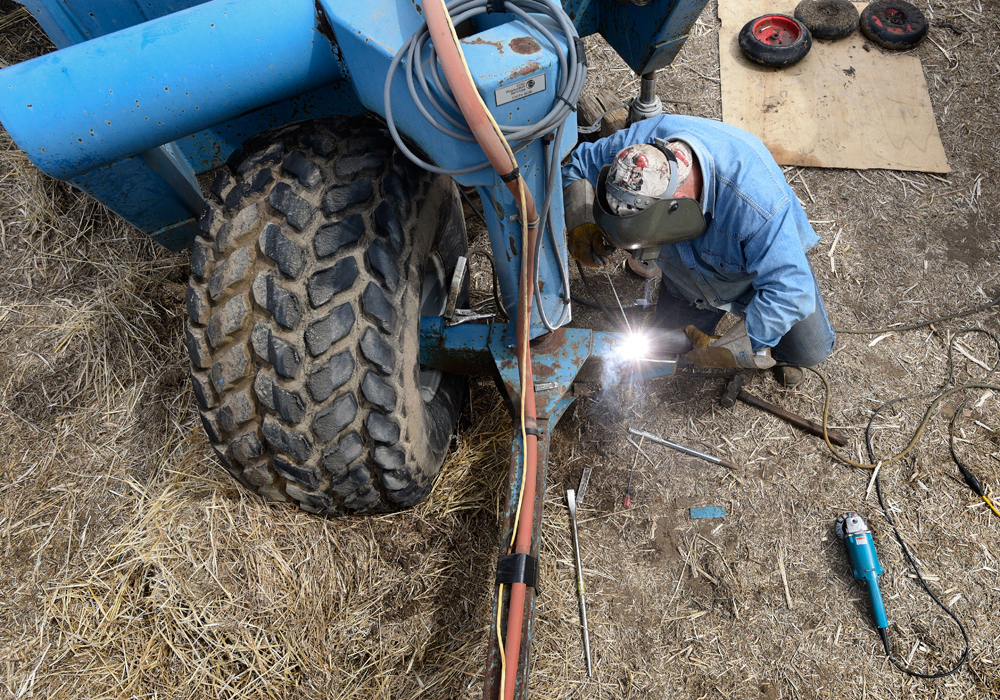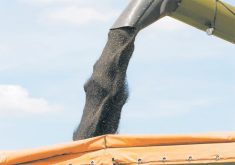At the beginning of the pandemic, observers worried about supply chain issues. After going through the 2020 and 2021 growing seasons relatively unscathed, concerns are growing for all sorts of farm inputs for the 2022 season.
I bought Fierce herbicide relatively early for fall application on where I plan to seed lentils next year, but a neighbour says he scuttled his plan to do the same when he couldn’t access any of the herbicide.
A farmer from another area says he planned to spread granular Avadex this fall, but so far had been unable to get any. His tractor is still hooked to the Valmar spreader, but he was losing hope that Avadex would be available before complete freeze up. Spring application would still be a possibility if the product becomes available, but it isn’t the preferred option.
Read Also

Invigor Gold variety viewed as threat to condiment mustard
Invigor Gold, the canola-quality mustard developed by BASF, is on a collision course with Canada’s condiment mustard industry. It’s difficult to see how the two can co-exist.
Yet another farmer talked of the difficulty in procuring a common size of tractor tire and when he was finally able to track one down, the price was astronomical.
These sorts of anecdotal examples are becoming much more common.
The spring of 2022 could also see significant availability issues for certain fertilizers. Spot shortage warnings have often been issued, but have seldom come to fruition. Next spring could be different.
Fertilizer prices have increased dramatically, but there’s an expectation the bubble has to eventually burst. Input suppliers don’t want to be holding a bunch of unsold fertilizer when prices take a downturn so they are no doubt only buying to match the sales they have lined up.
Fertilizer use could be down dramatically due to low soil moisture, a potential reserve of unused nutrients remaining in the soil and the aforementioned high price. Since suppliers don’t want to be caught holding unsold fertilizer, that increases the risk of supplies being inadequate to meet purchase requests that are late arriving.
It’s great advice to purchase all your fertilizer, crop protection products and seed as early as possible, but it’s easier said than done.
First of all, there’s the cash-flow issue. Many producers are relying on crop insurance payments that haven’t arrived yet.
As for fertilizer, it’s difficult to make all your purchasing decisions until you have your soil test results back and you’ve decided on your crop rotation.
It’s also difficult to know all the crop protection products you may want to use in the year ahead. Plus many products aren’t supposed to be frozen so unless you have heated storage, you shouldn’t be buying them in advance.
Perhaps there’s a market niche for someone to supply insulated shipping containers equipped with electric heat and a low temperature warning system so that interested producers would have a way to store products through the winter.
While fertilizer and crop protection needs can be anticipated in advance, it’s difficult to prepare for all the repair parts that could be needed on such a large array of necessary equipment. This is where supply chain issues could really become a problem.
Waiting for a day or two on a vital part for the seeding tractor or air drill is one thing. Waiting weeks or longer is quite another. Beyond having even more replacement parts on hand than usual, probably the only defense is working with neighbours. You have their back and they have yours in case a critical piece of equipment is out of service.
Perhaps supply chain issues will largely rectify themselves before spring, but at this point that seems unlikely.
Kevin Hursh is an agricultural journalist, consultant and farmer. He can be reached by e-mail at kevin@hursh.ca.
















